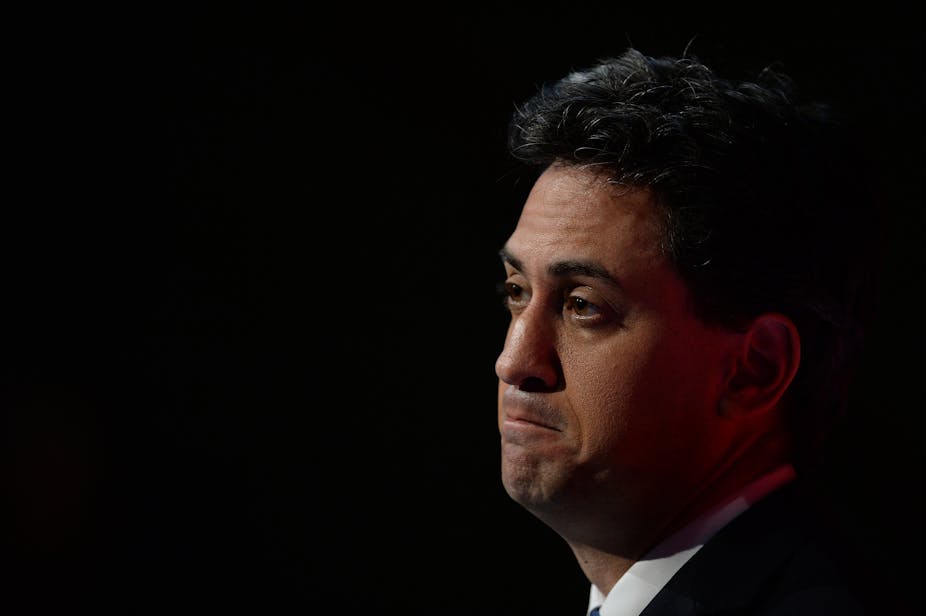Five years ago, Ed Miliband decided to stand for the leadership of the Labour Party because he felt the global financial crisis had opened the way to a centre-left moment. He was ready to turn the page on New Labour with a new focus on inequality. It turns out that he was wrong. Very wrong. Five years on, British voters have rejected Milibandism at the polls in an overwhelming manner. Labour is on course for its worse electoral result since 1987.
This outcome has come as a huge shock to the party, the commentators and the pollsters, as it contradicted all the opinion polls conducted in the past year which had showed the two parties stuck neck and neck. It also contradicted the general perception that, despite the odds, Labour had fought a good campaign.
What went wrong
Many things went wrong for Miliband from the very beginning of his leadership. He started by winning the leadership of the party in the wrong way. Not only did he defeat his older brother, David, by a very small margin, he also won thanks to the votes of the trade unions. This simple fact had a devastating effect over Ed Miliband’s chances to become prime minister.
Winning in the wrong way meant that Miliband had little control over the Labour Party. He spent most of his leadership trying to get the party behind his agenda. Some backbenchers have not yet digested the fact that the wrong Miliband had won the leadership election. Most had misgivings about Ed Miliband’s agenda, which was seen as too left-wing and lacking economic credibility.
The powerful Blairite wing was particularly good at sharing its reservations about Miliband’s leadership skills with the media. And even those who supported his agenda were critical of his overly cautious style and legendary indecision. As a result, Miliband looked like a lone rider.
His isolation in the party was quickly picked up and exploited by the media. Throughout Miliband’s leadership, countless stories about party divisions, about his shortcomings as a leader, and several plot attempts to oust him, were published in the main news outlets, contributing to construct the image of a weak leader. Miliband’s failure to counteract such serious image problems meant he failed to come across as an authoritative leader.
But the right-wing media also liked to present him as a thoroughly dangerous politician. When his proposals for a Mansion Tax or a freeze on energy prices were not being compared to Stalin’s Soviet Union, he was portrayed as the “weird” politician who was clearly not fit to enter Downing Street.
This only intensified during the electoral campaign. For six weeks, the Miliband was portrayed in the right-wing press as either a dangerous politician who would ruin the country, or as a puppet of the SNP. Judging by the surprising victory of the Conservative Party, this strategy of fear worked.
As a result of these constraints he was forced to concede on a number of areas, namely on the deficit. As Miliband was unable to dispel the public perception that the financial and deficit crisis that hit Britain in 2008 had been caused by Labour’s overspending, he was forced to accept – albeit reluctantly – some form of austerity. This reluctant embrace of austerity proved to be fatal – it had the effect of alienating Labour voters in Scotland and it failed to convince English voters about Labour’s economic competence.
Judging by the increase in the vote share of UKIP, English voters were also unconvinced by Labour’s stances on immigration. Labour’s qualified support of immigration also had the effect of alienating both progressive voters and undecided voters, who preferred the clear certainty of UKIP’s message.
What next for Ed?
As the results were still being counted in the early hours after the polls closed, the knives were already out for Miliband and it is expected that he will resign soon. The powerful Blairite wing will argue that Labour lost because it shifted too much to the left and failed to develop a credible economic programme.
If it is true that Miliband failed to win the debate about the economy, this diagnosis of Labour’s crushing defeat leaves quite a lot of important questions unanswered. For example, it does not explain why UKIP has done so well in Labour’s heartlands in England. More importantly, the Blairite response would have not prevented the SNP surge. In fact, quite the opposite, as the SNP has won many Labour voters thanks to its anti-austerity message. It is also worth mentioning that Labour started to lose Scotland to the SNP in the New Labour era and not only in the aftermath of the independence referendum.
This means that whoever will become the next Labour leader – Andy Burnham, Rachel Reeves, Chuka Umunna might be some of the contenders – will struggle to develop a credible response to the party’s electoral challenges in England and in Scotland.

